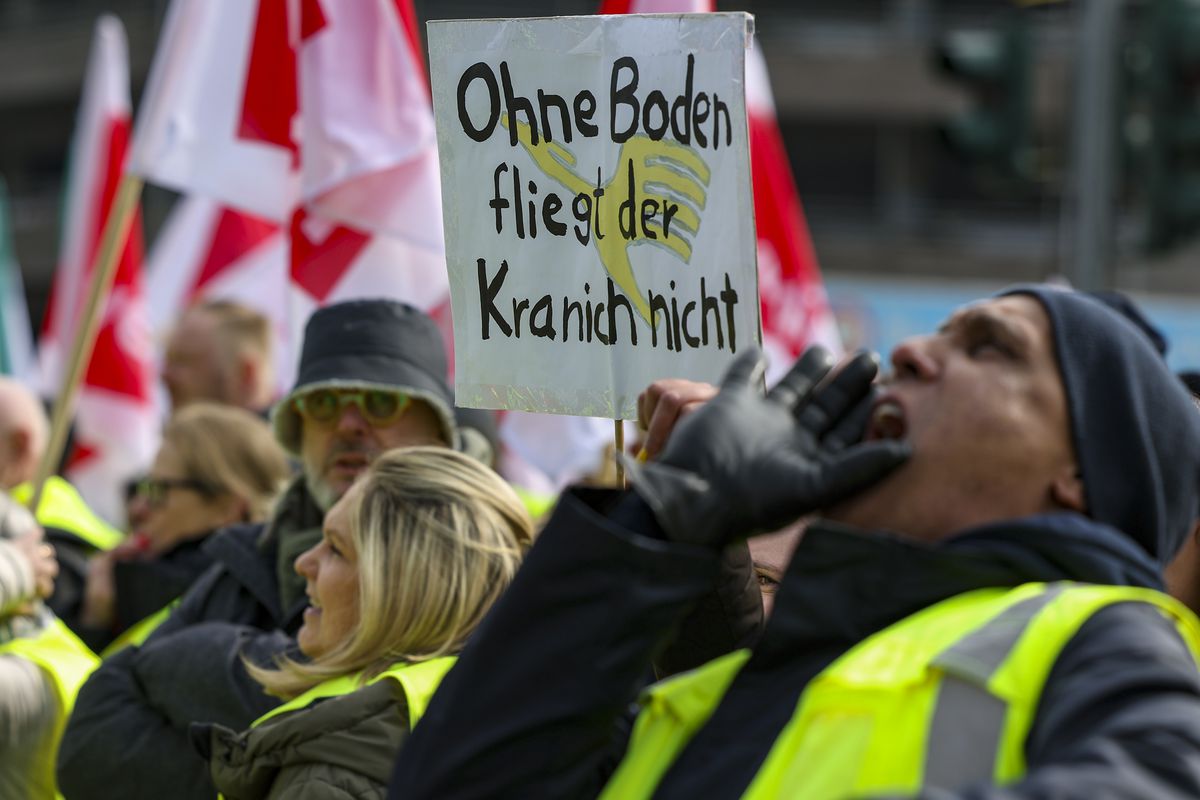Breakthrough or industrial action: unions and employers in the south-west want to negotiate a pilot deal in the collective bargaining conflict in the metal and electrical industries.
Ludwigsburg - The wage talks that will probably be decisive for the German metal and electrical industry are only making slow progress.
No result was expected before midnight, as the German Press Agency learned from negotiation circles in Ludwigsburg near Stuttgart on Thursday evening.
No information was given about the status of the talks.
An IG Metall spokeswoman had previously said that the first talks had been constructive.
Pilot completion as a goal
In the fifth round of collective bargaining in the Baden-Württemberg district, employers and IG Metall want to get a pilot agreement that will then essentially apply to the 3.9 million employees in the industry in Germany.
It was already foreseeable in advance that tax-free one-off payments totaling 3,000 euros could become part of a tariff package.
However, the term and the amount of possible percentage salary increases remained open until the very end.
IG Metall went into collective bargaining with a demand for eight percent more money over a period of twelve months.
Employers want to extend this period as long as possible in order to give companies planning security.
Previously, they had linked an increase in the table fees to a period of 30 months.
"We are basically still confident, although the many discussions of the last few days and weeks have meant ups and downs," said Harald Marquardt from Südwestmetall.
You try to get an agreement - but it won't be easy.
According to the union, both sides had come closer to each other on many detailed questions in the past few days and created a jumping-off point.
Zitzelsberger: "Tariff nights are long"
"Not only Kreuzberg nights are long, but also tariff nights are long," said IG Metall district manager Baden-Württemberg Roman Zitzelsberger before the talks with a view to their possible duration.
In addition to the 3000 euros, what is needed above all is a permanent and strong increase in fees.
"If we don't get there, then this collective bargaining round will escalate - then we will talk about other forms of industrial action."
The top committees of Gesamtmetall and IG Metall were also at the venue.
Union leader Jörg Hofmann said: "I've been to Ludwigsburg several times and usually always came home with good results." If the talks failed, he had previously brought 24-hour warning strikes and ballots with subsequent area strikes in individual regions into play .
"Baden-Württemberg would definitely be there," Hofmann said.
If no agreement is reached on Thursday, the union cannot return to the negotiating table very quickly.
According to IG Metall, almost 900,000 people took part in warning strikes throughout Germany by Thursday.
On Thursday alone, 100,000 people temporarily stopped working.
In Baden-Württemberg, more than 286,000 employees have taken part since the end of the peace obligation at the end of October.
General metal boss: Collective bargaining is always a compromise
Overall metal chief Stefan Wolf said on the sidelines of the collective bargaining round that a collective bargaining agreement is always a compromise.
He thinks it would be nice if there was an agreement on Thursday.
"One-day strikes and labor disputes are of no use to anyone." Everyone knows that a recession is in the offing.
Collective bargaining this year has been impacted by the dramatic rise in energy and material prices.
Employers are therefore also calling for relief for companies that are already doing badly.
There is also a need for agreement on what happens if there is an energy emergency.
The conclusion reached in the chemical industry at the end of October shows where the talks could develop.
The IG mining, chemicals, energy had agreed with the employers on twice 1500 euros tax-free and two levels of 3.25 percent each.
With a term of 20 months, according to the union, this results in an average of almost 13 percent more and can almost compensate for the currently high inflation rates.
dpa







